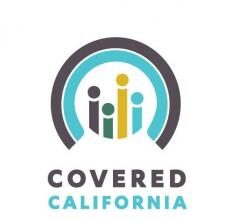Posted 12/27/12 on Medscape Connect’s Care and Cost Blog
Posted 12/27/12 on Medscape Connect’s Care and Cost Blog
My wife Elaine was hospitalized for 6 days recently with an array of ailments related to her advancing cancer, so diagnosing and addressing her problems required a multidisciplinary approach. In addition to the nursing and support staffs, she was tended by an emergency physician, two hospitalists, three gastroenterologists, a pulmonologist, an infectious disease physician and an interventional radiologist. With the exception of one specialist who had performed a procedure on her two weeks earlier, this episode was the first time any had met Elaine.
Each clinician was familiar with her status before visiting her, because the health system has an enterprise-wide electronic health record (EHR) that aggregates information into each patient’s chart. The hospitalists coordinated the care process and also touched base with Elaine’s primary care physician and her oncologist.
In other words, the system worked exactly like we hoped it would but often doesn’t. Especially in complex cases like this, the likelihood of a positive result is enhanced if the team members have access to the same complete information, and if someone – in this case the hospitalists – quarterbacks the activity.
Of course, this was possible because all the care occurred within a single health system that has a unified EHR. Information from EHRs in independent physician practices or ambulatory care sites – lab results, images, previous complaints, drugs and dosages – is unlikely to be merged, because the systems can’t talk. The same thing holds between health systems. Health care is currently an archipelago of information islands.
Information isn’t shared, not because it isn’t important, but because the nation’s EHR vendors have not committed to implement standardized protocols that can allow all health care information to “interoperate,” or flow seamlessly from one system to another.
There has been lots of policy discussion about interoperability, but EHR vendors have dragged their feet, and for good reason. A significant part of this is about protecting market share. If EHR customers can easily move their data to another platform, it also becomes easier to switch to a different platform.
But the care and cost consequences of this industry-wide strategy have been catastrophic. The barriers to merging pockets of data mean that physicians working with the same patient make decisions based on different incomplete data sets. This degrades attempts at objective evaluation, produces conflicting conclusions, impedes care collaboration and coordination, results in poorer outcomes and generates higher cost. It is not unreasonable to believe that this single issue unnecessarily costs the American people thousands of lives and hundreds of billions of dollars each year.
Some have argued that by 2014, the elements will be in place for safe, seamless health information exchange. But the incentives must be powerful, firmly in place and non-negotiable. Any industry that has shown a willingness to harm its customers for its own benefit over a period of years is not likely to simply cave without a fight.
The technologies required to exchange patient information are available and well understood. (Check out the Direct Trust protocol for secure “push” of messages and attachments, which is among the federal standards in the Meaningful Use EHR incentive program.) Our permissiveness in allowing systems to remain isolated has tied medical professionals‘ hands, caused patients to suffer unnecessarily, and exacerbated the already out-of-control health costs that threaten our larger economy.
American health care is too important to be left purely to market forces in some areas. Health information exchange is the foundation of care coordination, and so certainly fits that criterion. We need a zero-tolerance policy that mandates safe, secure health information interoperability, and severe penalties, like a market ban on products that do not align with exchange requirements, when products do not comply with standard protocols.
As in so many other areas of health care, employers and other powerful groups could leverage their own strength to redefine health care practice in ways that serves patients’ and purchasers’ interests first, rather than the other way around.







